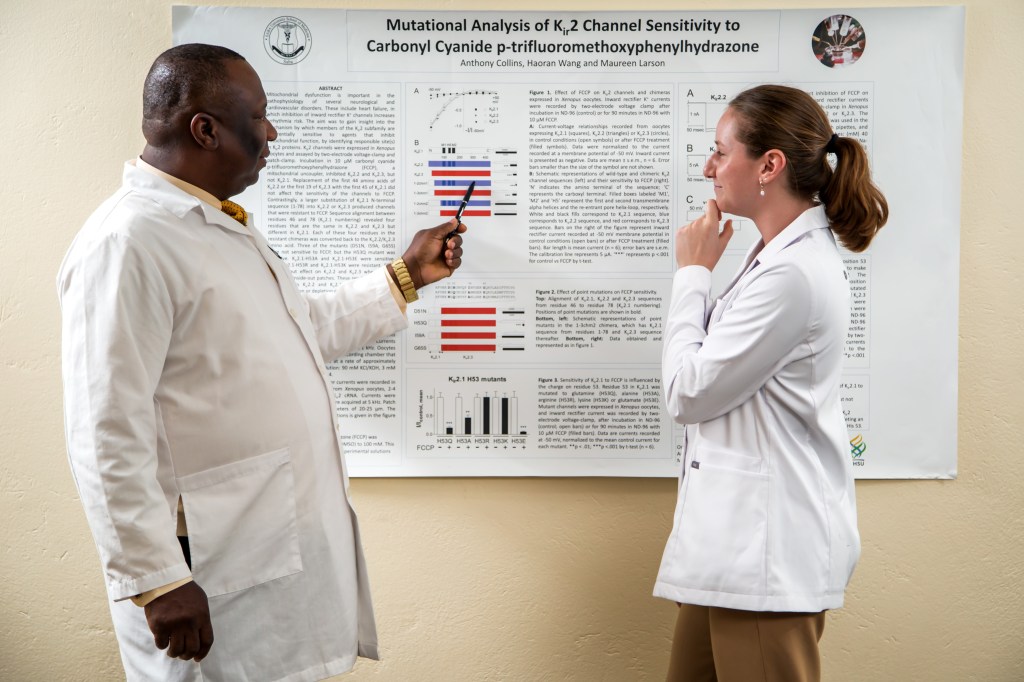
Research
Research at Saba
The field of medicine is constantly evolving with new medical issues emerging and scientific research advancing globally. It is crucial for medical professionals to possess critical thinking skills and apply scientific methods, particularly when evaluating new advancements.
At Saba University School of Medicine, we prioritize research and its incorporation into our medical education program to uphold these principles. Our curriculum is specifically designed to equip all graduates with the ability to:
- Integrate and apply their knowledge, understanding and problem-solving abilities in new or unfamiliar environments within the context of medicine.
- Handle complexity and formulate judgments with incomplete or limited information.
- Understand the social and ethical responsibilities linked to the application of their knowledge and judgment.
- Communicate their conclusions, and the knowledge and rationale underpinning these conclusions, clearly and unambiguously.
- Continue to study medicine in what may be largely self-directed or autonomous settings.
The development of these competencies begins early in the Basic Science curriculum with an introductory course that focuses on research skills and evidence-based medicine. Throughout the basic science program, students are exposed to research as course directors and faculty incorporate the latest developments in medical research into their teachings. Case presentations are also used to show students how biomedical research is integrated into patient care. Before starting their formal clinical training, students must complete a research module.
Research: Literature Review and Analysis
A unique and integral part of the Saba curriculum is our “Research: Literature Review and Analysis” module. Its purpose is to further develop students’ abilities to evaluate and assimilate scientific evidence and to reinforce the skills required to critically appraise the ever-changing body of medical knowledge.
Consistent with the university’s goals and objectives, these skills are essential to modern practicing physicians who will have to continuously improve their medical knowledge and clinical skills over the course of their career.
In addition, Saba students find that gaining formal research skills during their medical school studies helps distinguish them from other applicants when they enter the residency match program.
During the research module, students are expected to apply the knowledge and understanding from their Basic Science courses to analyze a current and complex medical care question, using evidence from published medical literature. As part of this course, students are required to develop a hypothesis based on the research questions, critically analyze the literature, and write a paper that is evaluated by a faculty committee.
While working independently, students will interact on a regular basis with a faculty research mentor who provides oversight throughout the project, including selection of an appropriate topic, identification of relevant literature, formulating conclusions, and the preparation of a final paper. The mentor will also review the written paper to ensure that it meets university standards prior to submission to the faculty committee for review.
The research module concludes with a written paper where students present their findings and draw conclusions. This paper is evaluated by a committee consisting of faculty and deans. In addition to the required research components of the curriculum, Saba actively encourages its students to independently pursue research projects, both during the basic science and clinical medicine phases of their education. Every semester, the school provides students and faculty with the opportunity to publish and present their research projects to their peers. Saba also supports the publication and presentation of student and faculty research projects in various journals and recognized forums.
Get in touch for more information